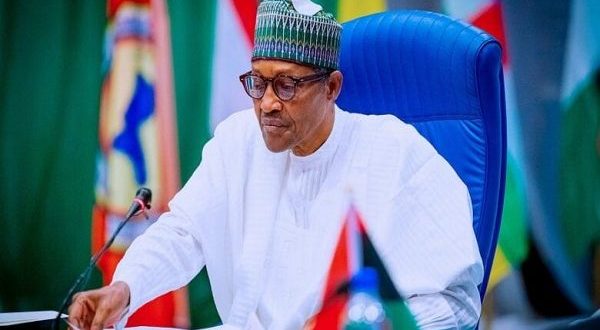By Daniel Ayantoye | Oyo
A Civil Society Group, Coalition for Affordable and Regular Electricity (CARE) has condemned the federal government over the policy that will allow the power companies to hike tariff incessantly and periodically.
The group in a statement made available to NATIONAL TELESCOPE on Wednesday, March 23, 2022 called for the reversal of the policy.
The statement reads in full, “The Minister of Finance, Mrs Zainab Ahmed disclosed on Thursday, March 10, 2022, that the federal government had quietly removed subsidy on electricity tariff. The implication of this policy is that working people and the poor masses will be forced to pay higher tariffs twice every year. Coalition for Affordable and Regular Electricity (CARE) condemns the policy that will allow the power companies to hike tariff incessantly and periodically. Besides, the government claimed that it was subsidizing the power sector to the tune of N1.7 billion daily but in reality, the government was only bailing out the corruption, expensive lifestyle of the directors and top managers and unsustainable debts incurred by the power companies. For instance, N6 billion released by Central Bank of Nigeria (CBN) to the Ibadan Electricity Distribution Company (IBEDC) was subjected to insiders abuse and sharp practices in 2017 wherein IBEDC gave a loan of about N6 billion to its parent company (Integrated Energy Distribution and Marketing Group), this is one example of how privileged private companies mismanage so-called subsidy and bailout funds.
“In a profit-first system there will always be unjust hikes in petrol and electricity prices just like other essential commodities. The bourgeois ruling class and their private collaborators always clamour for higher rates and prices to guarantee super profit. The power companies have shown obvious incapacity to develop the sector, they are only interested in higher tariff and outrageous estimated billing while power infrastructure and facilities are in decrepit conditions triggering incessant system collapse and leaving communities mostly in darkness. In fact, hike in tariff is a reward for failure and inefficiency. In the last 15 years, the government has spent over $15 billion on power and nothing to show for it fundamentally except darkness. Since the power sector was privatized in November 2013, electricity tariff has been steadily hiked from about N12.50 to about N48 representing a whopping 280% increment.
“The most worrisome is the fact that the President of the Nigeria Labour Congress (NLC), Ayuba Wabba, the President of the Trade Union Congress (TUC), Quadri Olaleye and other key labour leaders have kept quiet only for the government to quietly remove the so-called subsidy that practically implies that power companies can go-ahead to increase tariff so often and unjustifiably. Labour leaders threatened to embark on strike on September 28, 2020 over increment in the price of electricity and petrol only to back down and resorted to talks with the government. As a matter of fact, it was the botched strike action and the refusal of NLC and TUC to lead a mass struggle that led to the ENDSARS mass movement that protested police brutality and rising poverty. Talks with the government led to the setting up of a Technical Committee comprising 6 representatives of government/DISCOS and 3 representatives of NLC and TUC. The only thing labour leaders got from the talks was a delay in the implementation of the then tariff hike for a month and government acceptance to have labour represented in NERC. Given the labour strategic alliance with the self-serving ruling elite, it appears the natural course of action or inaction of labour leaders is to allow anti-people policies unchallenged and unchecked.
“Put simply, labour leaders have agreed with the government to have electricity tariff increased so often despite growing poverty and cost of living. Labour leaders went into talks with the government but never reported back to Nigerian workers on what was agreed upon as they have chosen to remain quiet. It is the same manner NLC and TUC bark for a struggle but refuse to bite and undemocratically call off strikes. In October 2020, labour unfortunately and openly endorsed privatization and deregulation and so, it is not shocking to endorse tariff hikes, though quietly.
“Labour leaders have left the flood gate open for numerous attacks on the working people. N30,000 minimum wage has not been implemented by many State Governments despite being eroded by the rising cost of living and labour leaders stand akimbo. Diesel and Kerosene have been deregulated and the prices have steadily moved up and currently, about 720 per litre and over N500 per litre respectively and this does not worry labour leaders. There is rising cost of living, hyperinflation and rising poverty; there is massive infrastructural deficit and unemployment and labour leaders are less concerned. There have been three electricity tariff hikes since NLC threatened to go strike in September 2020 but labour leaders have quietly looked the other way. The anti-labour policies such as casualization are endemic in workplaces but labour leaders pretend it is not happening while in some cases like what we have seen in the food industry, NUFBTE (Food Union) leaders themselves set up outsourcing companies for the purpose of casualizing workers. These privileged right-wing labour leaders are comfortable with the present socio-economic crises because they are now aristocratic and the capitalist system has made them privileged such that they do not feel the impact of the economic crises ravaging the working people.
“Privatisation, deregulation and other anti-people capitalist policies are responsible for the growing socio-economic crises. Instead of doing away with these policies, the capitalist ruling elite is sustaining it for its self-serving profit interest. It is high time the labour movement and the working class struggled for an alternative socialist programme wherein the commanding heights of the economy are nationalized and democratically controlled by the working class. What the power sector requires like any other key sector of the economy is a massive public investment to expand infrastructure and facilities and to motivate workers via decent working conditions in order to guarantee uninterrupted electricity at an affordable tariff rate.”
 National Telescope national telescope newspaper
National Telescope national telescope newspaper



